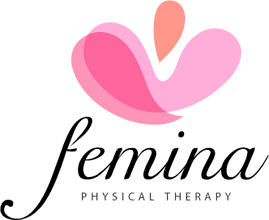Do you really know what happens to your hormones during pregnancy? Do you know what hormones are in play during pregnancy?
Well, let’s go through some of the hormones and their functions during pregnancy, so you can have a better understanding of what is occurring in your body.
- Human Chorionic Gonadotropin Hormone (hCG): This hormone is made in the placenta and is only produced during pregnancy. Johns Hopkins medicine says that it may be a part of nausea and vomiting that occurs during pregnancy.
- Human Placental Lactogen (hPL): This is hormone is made in the placenta. It gives nutrition to the fetus and also helps stimulate milk glands in the breasts for breastfeeding.
- Estrogen: Helps stimulate the growth of your uterus and assists with developing your breast ductal system. This is to prepare for breastfeeding. Your estrogen production during pregnancy increases 30x normal levels!
- Progesterone: Helps prepare the lining of the uterus to accept a fertilized egg and with high levels of progesterone the body will not ovulate. Once pregnant progesterone levels continue to stay high to stimulate blood flow to the growing fetus and so the body does not produce more eggs. Like estrogen it also assists with breast milk production. This hormone can also cause smooth muscle relaxation, including the GI tract and uterus. Relaxation of the GI tract can be a reason why during pregnancy someone can experience constipation.
- Relaxin: This hormone is produced by the corpus luteum (an endocrine gland made in the ovary when a follicle has matured and released an egg during ovulation) and the placenta (an organ developed in the uterus during pregnancy that provides oxygen and nutrients to your baby). It inhibits uterine activity and helps relax the pelvic joints to prepare for birth. Relaxin peaks during the first trimester.
- Oxytocin: Plays a role during childbirth by stimulating contractions of the uterus during labor. It also helps with milk release during breastfeeding by stimulating the milk-ejection reflex post childbirth.
- Prolactin: This hormone is released when a newborn suckles at their mother’s breast, resulting in the production of milk.
These hormones will have an influence on various systems of the body during pregnancy to prepare for birth and to allow the body to supply mother and fetus. These systems include:
- Cardiovascular
- Musculoskeletal
- Urinary
- Integumentary
- Endocrine
- Immune
- Respiratory
- Reproductive
- Gastrointestinal
- Sensory
Let’s go over a few examples of what changes are occurring within some of these systems:
Cardiovascular:
For instance, during pregnancy your diastolic blood pressure may decrease ~10-15 mmHg by 24-32 weeks. This is important to consider because body positioning can affect blood pressure. If you are lying on your back be mindful of symptoms of faintness, lightheadedness, dizziness, nausea, or agitation this can be indicative of supine hypotension.
Usually by the second trimester your OBGyn is recommending that you avoid lying on your back due to the possibility of occlusion of the vena cava and aorta in supine positions. You can modify this by using pillows to put yourself on an incline or laying on your side.
Respiratory:
If you notice yourself breathing more deeply, well during pregnancy your oxygen consumption increases by 20%. This is because now half of that oxygen has to go to the fetus and placenta.
Musculoskeletal:
Some common postural changes that occur include forward head posture, increased thoracic kyphosis, rounded shoulders, increased anterior pelvic tilt and usually a wider base of support while the belly becomes larger. So you can imagine with these postural changes and with the stress that is put on the body with increased load on the abdomen that someone can develop musculoskeletal pains.
For instance, some women begin to feel low back pain, hip pain, and pelvic girdle pain. And these symptoms can persist following pregnancy. Also, something to be aware of is that during pregnancy relaxing helps relax ligaments of the pelvic joints.
So when exercising you don't want to do any strenuous adductor (inner thigh muscles) strengthening especially with your legs wide apart. This can put too much stress on the pubic symphysis and lead to over stretching of those ligaments.
What occurs to your body throughout pregnancy and leading up to birth is much more complex than this blog, but we just wanted to share a few insights on the process. The first time you are pregnant it can be overwhelming because a lot of us are not educated on what occurs to our bodies until that day comes. Knowledge is power and can help us better understand and prepare us for when we decide to go through the miracle of pregnancy. And know that a pelvic health therapist can help support you through the journey! Click here to get started.
References:
https://www.britannica.com/science/corpus-luteum
https://www.hopkinsmedicine.org/health/conditions-and-diseases/staying-healthy-during-pregnancy/hormones-during-pregnancy
https://www.hormone.org
Irion, J. M. (2013). Womens health in physical therapy. La Vergne, TN: Cram101, Inc.
https://www.mayoclinic.org/healthy-lifestyle/pregnancy-week-by-week/in-depth/placenta/art-20044425
https://my.clevelandclinic.org/health/body/22337-placenta










